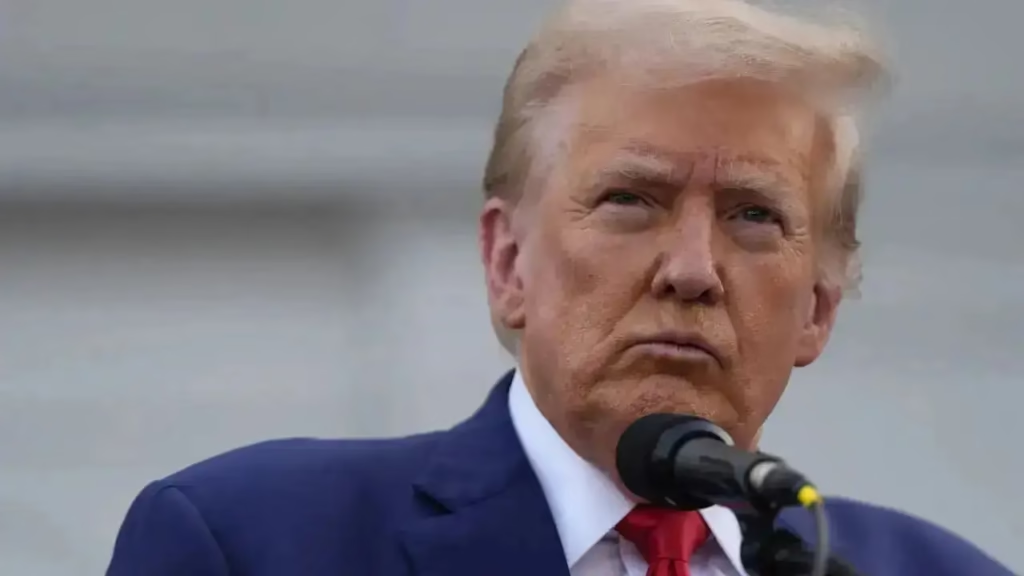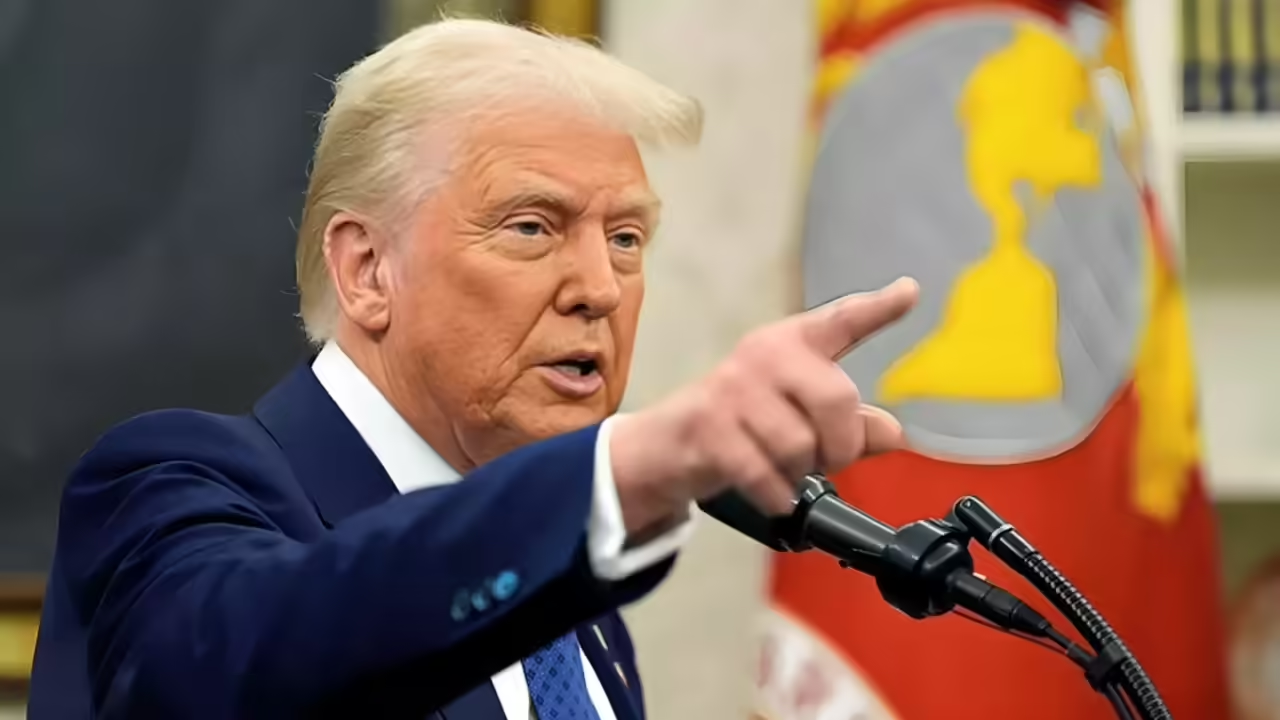
Former U.S. President Donald Trump has reignited debate over America’s military strategy in Asia after declaring that the United States is working to reclaim Bagram Air Base in Afghanistan. Trump framed the move as crucial to countering China’s growing power, drawing sharp global attention to the abandoned American facility once considered the nerve center of U.S. operations in the region.
Trump: “We Want Bagram Back”
Speaking during a press conference in the United Kingdom alongside Prime Minister Keir Starmer, Trump delivered a blunt assessment of the 2021 U.S. withdrawal from Afghanistan. He called it a “total disaster” and said Bagram should “never have been given back.”
“We are trying to get Bagram back,” Trump said. “It’s one hour away from where China makes its nuclear weapons. We want Bagram back, and we are working on it.”
The remark underscores Trump’s long-standing criticism of President Joe Biden’s handling of the Afghanistan pullout, which saw U.S. forces leave the airbase in July 2021 before the Taliban seized control of Kabul weeks later.
Bagram’s Strategic Value
Located about 40 miles north of Kabul, Bagram Air Base was the largest U.S. military installation in Afghanistan for two decades. It served as a logistics hub, air command center, and intelligence outpost. But its value extends beyond Afghanistan.
Bagram’s proximity to western China gives it unique geostrategic importance. Trump highlighted this point directly, suggesting that controlling the airbase would provide the U.S. a critical vantage point near Chinese nuclear facilities. While military experts debate the accuracy of Trump’s “one hour away” claim, there is no doubt that the base would offer the Pentagon a forward position in Asia at a time when Washington is increasingly focused on Beijing’s military expansion.
The Taliban Factor
Since August 2021, the Taliban have controlled Afghanistan, including Bagram. For the U.S. to re-establish a presence, some level of cooperation—or negotiation—would be unavoidable.
Trump hinted at such possibilities. “The Taliban need things from us,” he said, leaving open the prospect of a deal. But so far, neither Washington nor Kabul has confirmed any formal talks about returning American forces to the base.
Analysts warn that retaking Bagram is not as simple as flying in troops. The base’s infrastructure may have deteriorated, security threats from ISIS-K and other militant groups persist, and any U.S. presence could spark backlash among Afghans still wary of foreign occupation.
China in the Crosshairs
Trump’s comments place China at the center of the discussion. The former president has consistently taken a hard line on Beijing, from trade disputes to military rivalry. By tying Bagram directly to China’s nuclear weapons program, Trump made clear that his interest in the base goes beyond Afghanistan itself.
“The message is unmistakable,” said Michael O’Hanlon, a defense analyst at the Brookings Institution. “Trump wants to frame Afghanistan as part of the broader U.S.–China competition. Bagram becomes less about counterterrorism and more about geopolitics.”
China has deepened its ties with the Taliban since the U.S. exit, exploring investments and security cooperation in Afghanistan. If Washington were to regain control of Bagram, it would not only challenge Beijing’s growing influence in Kabul but also project American power closer to China’s western frontier.
Critics Raise Concerns
Not everyone sees Trump’s plan as realistic. Military officials caution that any attempt to reoccupy Bagram without clear Afghan approval could resemble “an Afghan reinvasion.” Diplomats warn it could complicate relations with regional powers such as Pakistan, Iran, and Russia.
“There’s a difference between political rhetoric and military feasibility,” a former Pentagon official told Reuters. “Bagram is valuable, but going back would come at enormous cost—financial, political, and human.”
Domestically, Trump’s remarks could reignite debates about whether the U.S. should return to Afghanistan after spending more than $2 trillion and losing over 2,400 American lives in a war that lasted 20 years.
What Comes Next
The road to Bagram remains uncertain. Trump did not specify whether negotiations with the Taliban are underway or how far discussions have advanced. For now, his comments signal intent rather than policy.
Still, the implications are significant. If the U.S. regains access to Bagram, it would reshape America’s military footprint in Asia, strengthen its hand against China, and potentially reopen America’s role in Afghan affairs. If not, Trump’s statement could still pressure Biden’s administration to rethink its strategy in Central Asia.
For the Afghan people, the question looms: would a return of American forces stabilize the region—or drag it back into turmoil?



